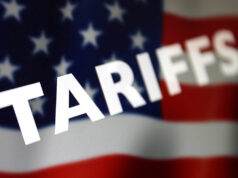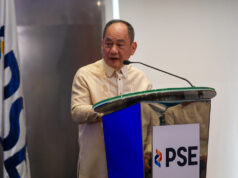Treasury makes partial award of 7-year bonds, yield 7.085%
THE government made a partial award of the reissued seven-year Treasury bonds (T-bond) at the auction yesterday amid high rates following the central bank’s latest policy tightening.
The Bureau of the Treasury (BTr) issued only P5.73 billion worth of bonds out of the P15 billion it wanted to raise at yesterday’s auction of reissued seven-year paper with a remaining life of six years and six months.
The offer was undersubscribed with total tenders from banks and other financial institutions at P13.88 billion.
The bonds, which carry a coupon of 5.75%, fetched an average yield of 7.085%, 110.9 basis points (bps) higher than recorded on June 13.
The BTr opted to reject all bids for the seven-year paper during its last offer on July 17. Had the government awarded all bids, the rate would have averaged 6.621%.
On the secondary market prior to the auction, the debt notes were quoted at 6.8492%.
At the close of trading, the seven-year bonds yielded 6.9322% .
Following the auction, Deputy Treasurer Erwin D. Sta. Ana said the Treasury opted to partially award the seven-year papers as it took into consideration the recent policy stance adjustment of the Bangko Sentral ng Pilipinas (BSP).
“The last time we awarded this security at least partially was on June 13, so from June 13 to now, there have been several actions or rate hikes from the BSP,” Mr. Sta. Ana told reporters yesterday.
The BSP has raised borrowing costs by a cumulative 100 bps since May to quell elevated inflation expectations. Benchmark rates currently range from 3.5-4.5%.
“We just took into account those increase so that’s why we came up with a reasonable cut of rate,” Mr. Sta. Ana said.
“We ran internal simulation as well and we think that the average rate is still acceptable for the Treasury.”
Meanwhile, a bond trader said she found the average rate “quite high.”
“In terms of the yield, it’s quite high yet [the BTr accepted some bids]. They tried to catch up,” the trader said in a phone interview.
“All the more the yields would be higher so it would be a drought on our end because a yield of [around] 7% is quite off.”
She added that the bids have been restrained ahead of the possible rate hikes from the BSP as well as the US Federal Reserve (Fed).
Economists expect the BSP to hike rates by another 50 bps when the Monetary Board meets on Sept. 27, given the stronger-than-expected August inflation of 6.4%.
The Fed is also expected to raise rates during the meeting of the Federal Open Market Committee on Thursday on the back of tightening job market and after inflation surpassed the 2% target.
The government plans to borrow P888.23 billion this year from domestic and foreign sources to fund its budget deficit, which is capped at 3% of the country’s gross domestic product.
Meanwhile, Mr. Sta. Ana added that the Treasury is still looking at issuing dollar-denominated Republic of the Philippines (ROP) bonds next quarter.
“The plans for ROP this year is still on the table. We are closely looking at that space this fourth quarter,” he said.
He added that it is gathering investor feedback during the government’s non-deal road show in London this week.
“The reason why we are also getting feedback from investors via the non-deal road show is to [know] whether there’s actually demand for ROP credit for these currencies.”
The Philippine Economic Briefing, which will take place on Sept. 24-26, will “update” British businesses “on the progress of the Duterte administration’s economic reform agenda, particularly on its Comprehensive Tax Reform Program as well as the performance of the Philippine economy.”
In January, the country returned to the global bond market after four years, offering 10-year dollar-denominated global bonds worth $2 billion which carry a 3% coupon.
Meanwhile, the government is also looking at issuing yuan- and yen-denominated paper to maintain its presence in the Chinese and Japanese capital markets. — Karl Angelo N. Vidal



